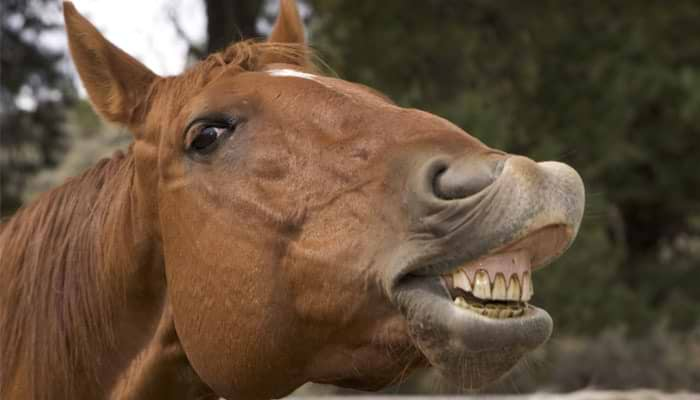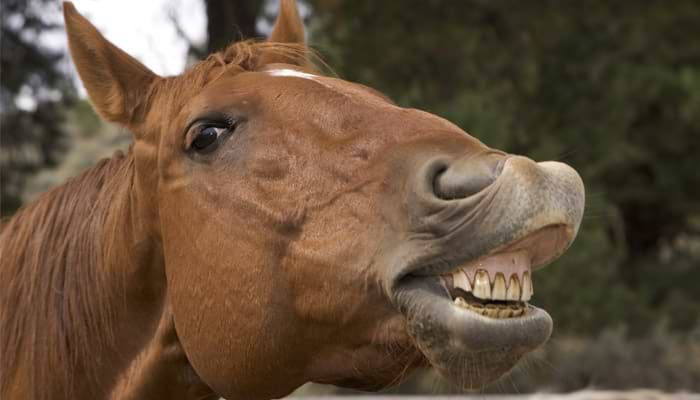
It's very important to keep up with the health and hygiene of your horse – don’t forget to treat your horse's teeth with care.
Our equine friends’ unique dental structure means their teeth are prone to abnormal wear, which can cause dental problems and diseases in their oral cavity. Their cheek teeth comprise the molars and premolars, while the incisors are at the front of the mouth. In the space between the incisors and premolars, there are canine teeth.
Horses use the incisor teeth for grasping and tearing food and the cheek teeth for grinding it. They chew in a circular motion, as the lower jaw slides along the upper teeth. If the horse eats smaller food particles, this motion is reduced.

© Wendy Kaveney / Adobe Stock
Symptoms of dental problems
When the teeth suffer abnormal wear or growth, or the horse loses teeth, the enamel will come into contact with the softer dentin. This can result in it wearing away quickly, increasing dental problems as the horse grows older. Abnormal chewing due to tooth problems can lead to weight loss, further tooth infections, or impaction colic.
Bad breath, facial swelling and weight loss are all symptoms of dental disease, which requires urgent treatment. To prevent the horse's dental health from reaching this serious state, they should have a professional oral examination every six to 12 months. Horses with dental problems should be seen more frequently.
Healthy diet
A horse's natural diet is pasture grass and tender plants. When it's good quality pasture, it is nutritious and healthy, especially when it contains silica, which is good for equine dental health.
Grains are not natural foodstuff for horses. They don't require the chewing time of natural pasture - and if fed in excess, they may lead to dental problems, or even colic.
When you feed your horse hay, look out for the most obvious sign of dental problems: chewed-up balls of hay at the bottom of the net, as this could mean your horse is dropping food because it is struggling to chew properly.
Horses with poor teeth won't eat as much as those with good teeth. It's important to make sure they are eating properly if they live as part of a group and all forage together. Older horses may be missing out on vital nutrition if the younger horses are getting to the feed first.
Replace longer-length forage with short, chopped, fibre feeds if you think your horse is struggling to chew due to age or other dental issues. These take more chewing than pellets of fibre, so are still good for your horse's dental health. For horses with poor teeth, use fibre pellets and dampen or soak them if necessary as a complete replacement for hay, if this is all they can manage.
Avoiding tooth damage
There are some simple steps you can take to avoid problems. If your horse has a bad tooth that's affecting its ability to eat, have it removed by a professional equine dentist, as it's likely to be causing pain and discomfort. One bad tooth can also start to affect the others around it, so it's essential you have it treated as soon as possible.
Always have correctly-fitting tack, making sure the bit fits your horse comfortably. If the bit sits too high or low in the mouth, it can damage the teeth. Also, monitor wood-chewing and cribbing, as this can damage horses' teeth. If you find this is happening a lot, try to feed them somewhere away from places where they have something to crib on.
When horses have proper dental care, they will be more comfortable, and they will utilise their feed more efficiently. A healthy diet may help them to perform better and even live longer.
For all things horsey, visit Griggs Equestrian in St Austell, or browse our website. We have a large range of top branded products just for you!





